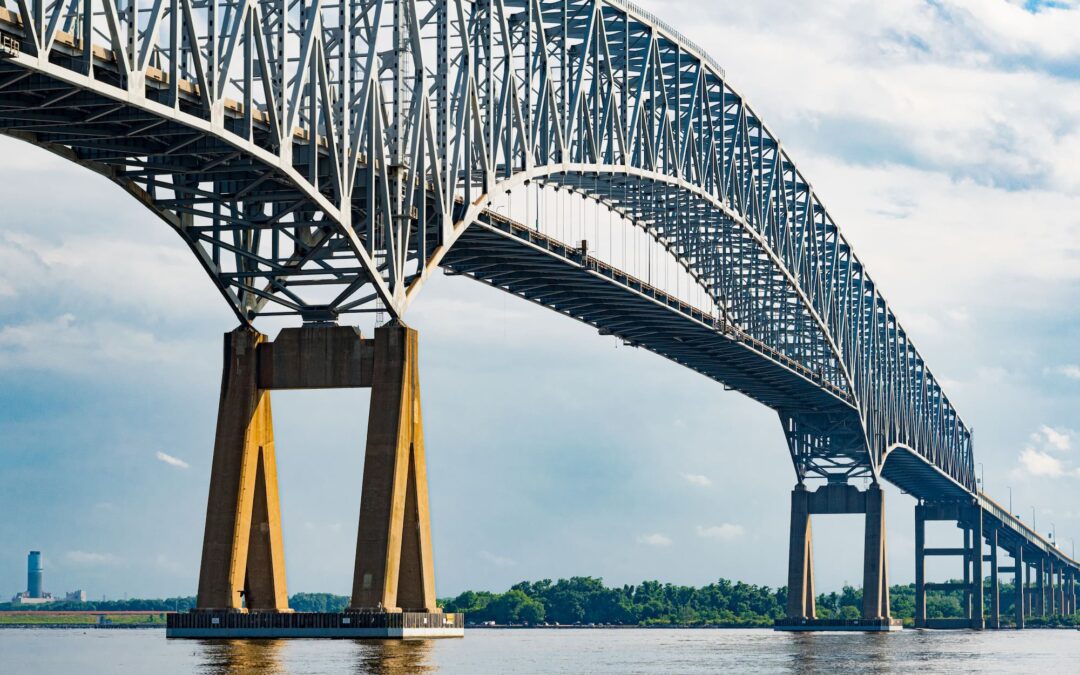After more than a day since the incident, many have seen how the Baltimore bridge collapse is affecting trucking. Early last Tuesday morning, a containership struck the Francis Scott Key Bridge, causing it to fall into the Patapsco River. A few cars and workers were on the structure during the crash, and a recovery search is currently underway. The passageway was the entryway to the Port of Baltimore, one of the busiest ports on the U.S. East Coast. Along with the catastrophe affecting moving cargo internationally, it has a direct impact on domestic shipping. Now, many truckers around the Baltimore area and nearby states are concerned about the future.
How The Bridge Collapse Is Affecting Trucking?
With the Baltimore Key Bridge connecting to the Port of Baltimore, the collapse has significant implications for the trucking industry. Around 4900 trucks traveled across the bridge daily, resulting in $28 billion in cargo movement yearly. Amongst these trucks, a significant portion of them are heavy-haul carriers. Shippers know the Port of Baltimore as the largest RoRo (Roll-on/Roll-off) port in the U.S. This means that there is a high volume of cars, light trucks, and other vehicle imports into the port. With the amount of transportation services relying on the port, business may soon slow down. Other major effects that truckers could soon feel are rising costs and monetary loss.
Rising costs come not only with extra shipping charges and increasing fuel prices but time as well. Port blockages force truckers to reroute to longer paths, adding to the monetary loss since drivers work defined daily hours. Trucking companies in states around the location could be directly affected by the accident. Automakers switching imports to other U.S. ports may hurt business for carriers in Philadelphia, Baltimore, New York, and Washington. On March 26, the Port of Baltimore announced that it would cease exports. This limits the drayage services to the port, further impacting businesses. The federal government revealed that it would pay for the cost of rebuilding the bridge.
What Can Truckers and Shippers Do To Prepare?
While it may be impossible for shippers to avoid the circumstance, they can take steps to protect their shipments. Since road blockages lead to traffic, redirecting freight transport is essential for a successful delivery. The issue with rerouting is that it can increase delivery times. Trucks carrying hazardous materials could have detours of nearly 30 miles since they cannot use the Baltimore city tunnels. It is also crucial that truckers and shippers follow the updates regarding the collapse. Understanding where the road congestion is is the first step in avoiding it. Looking at online news reports and other sources can help protect your cargo.
Shippers must be well informed on what to expect before starting to prevent any supply chain delays. While certain situations may seem scary, they should not prevent you from moving your goods domestically. One of the best ways that a shipper can prepare is by getting the assistance of a freight broker. Brokers are the intermediary between the shipper and the trucking company and coordinate the movement of the cargo. They also find solutions for situations that can disrupt supply chains, such as a pathway collapse. Contact A1 Freight Solutions at 786-375-9420 or info@a1fsinc.com to learn how we help you navigate the world of domestic shipping.

